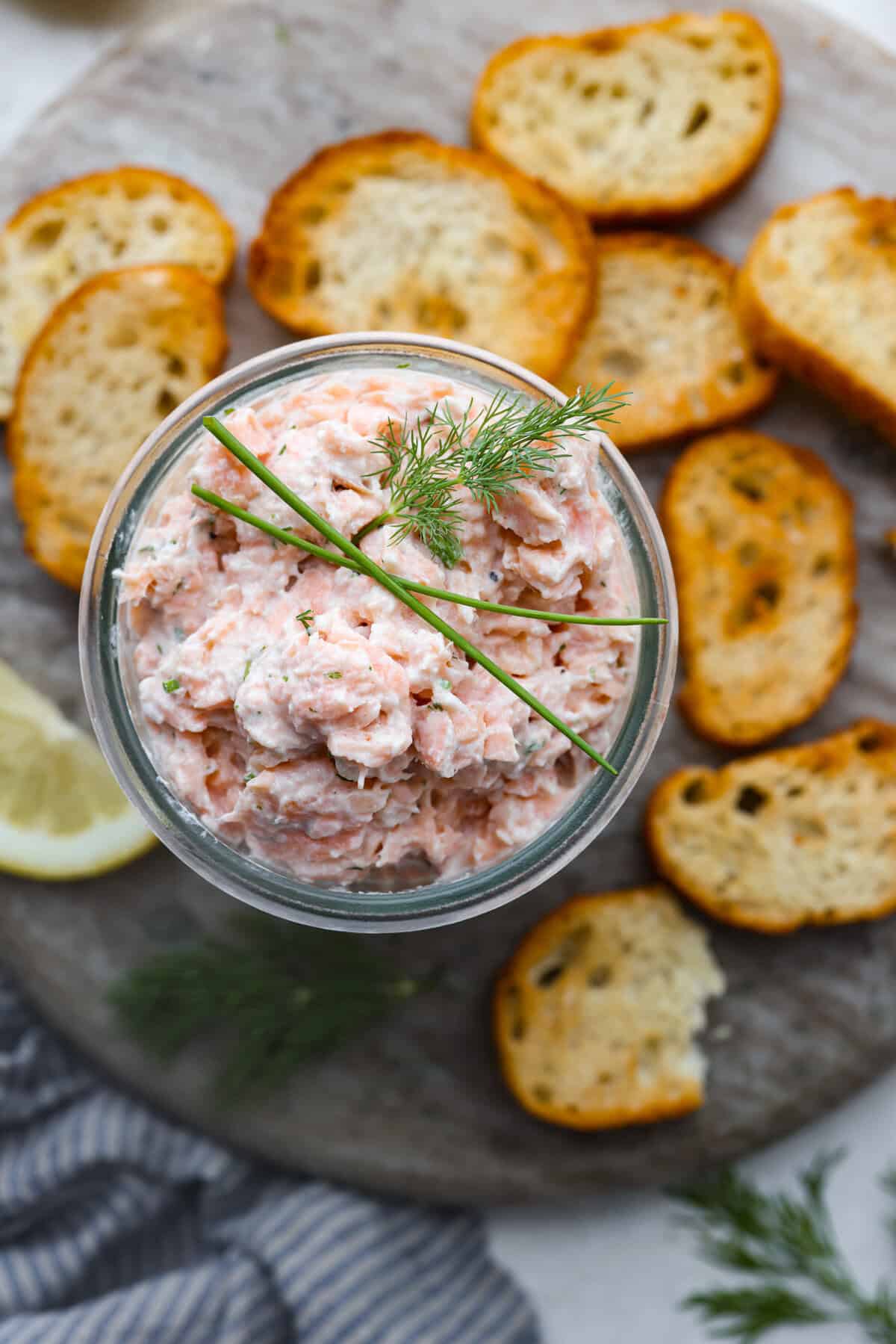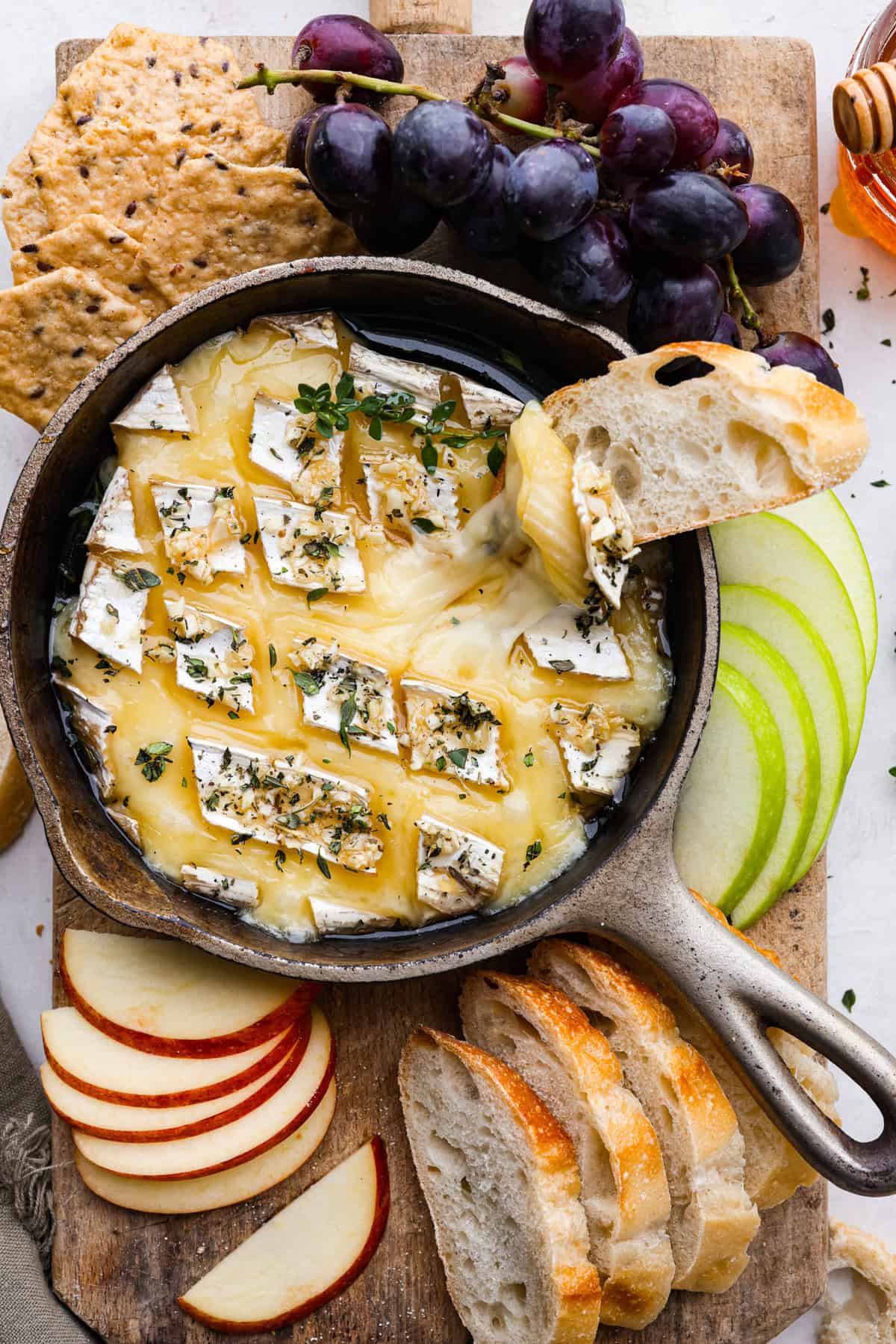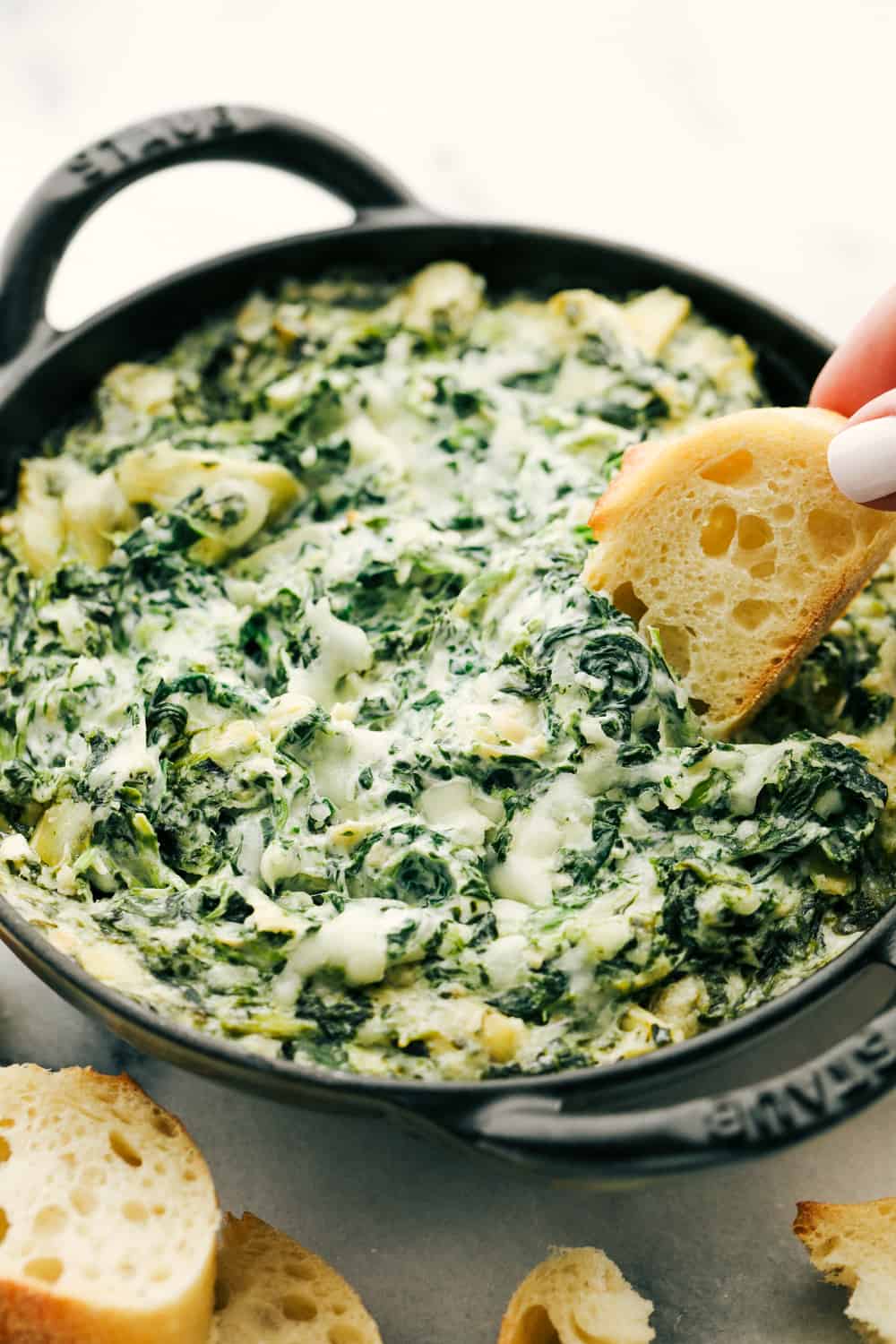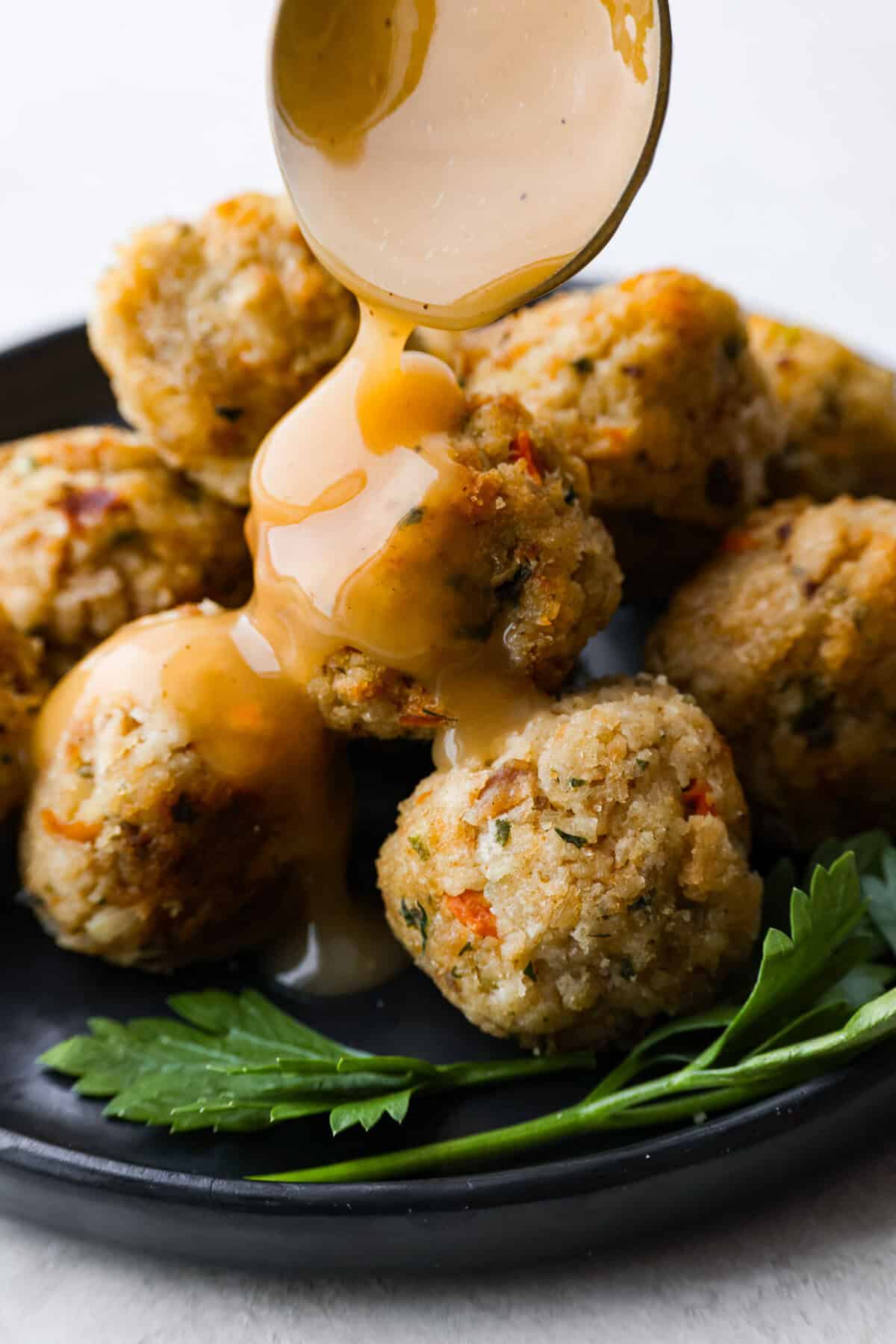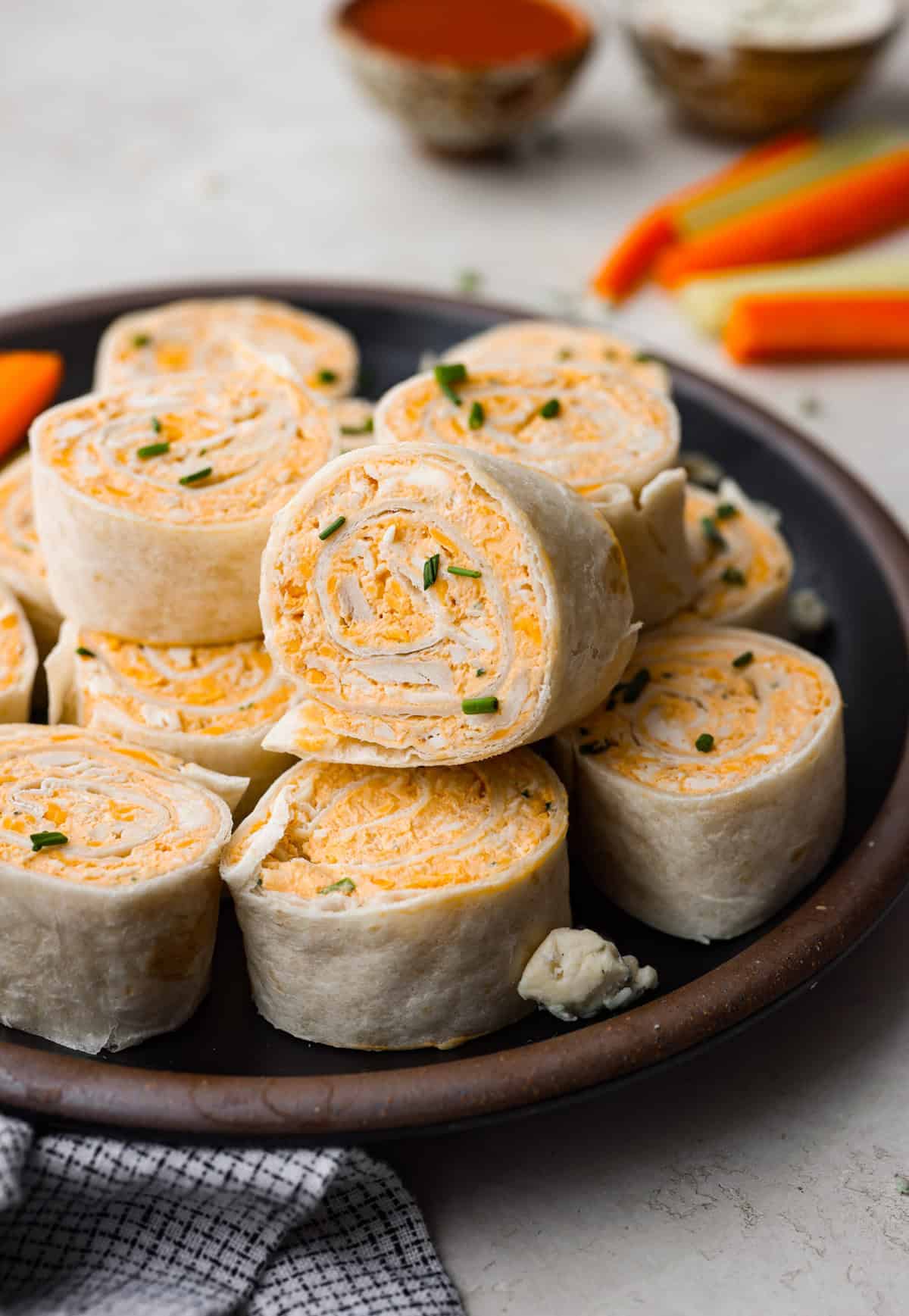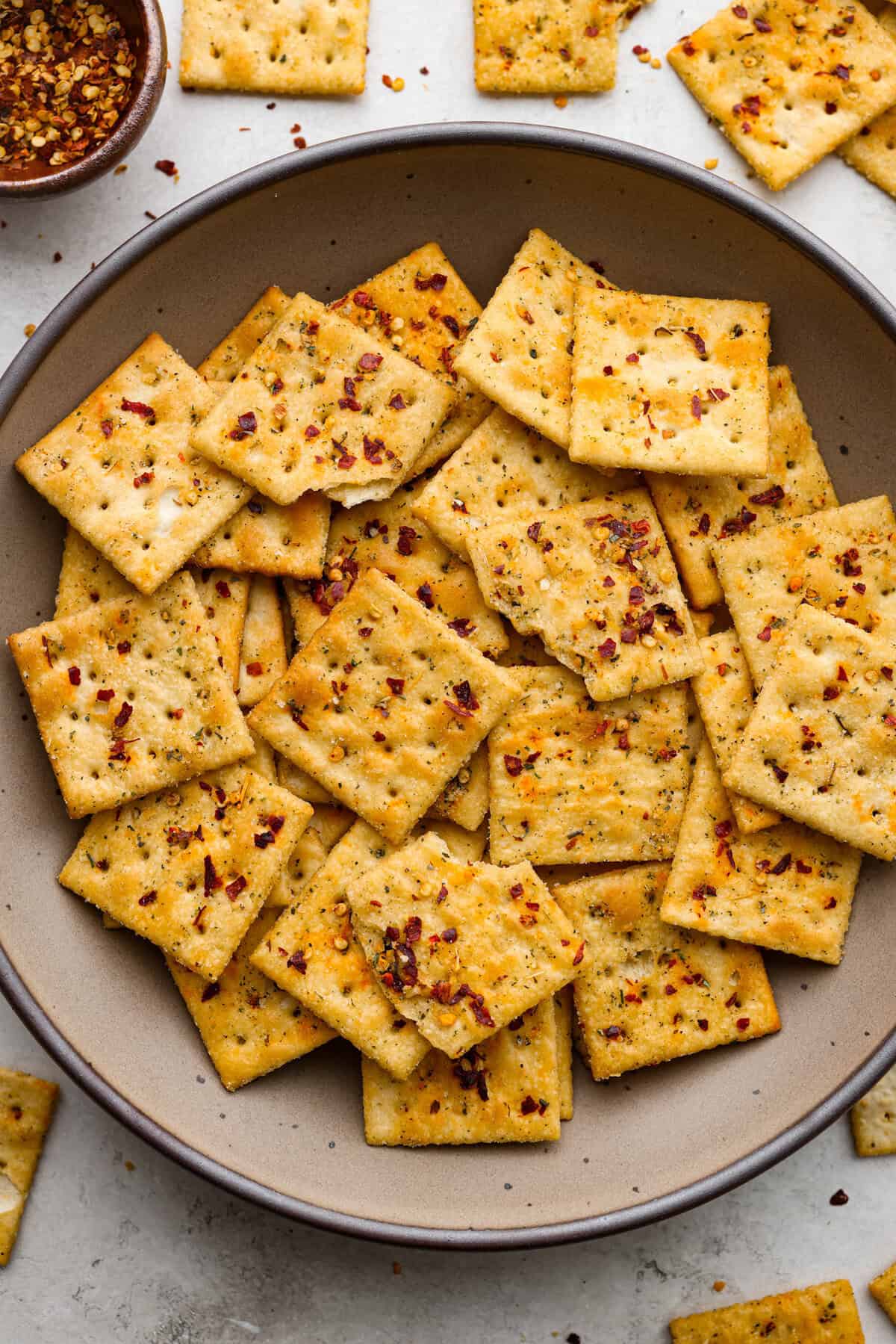This website may contain affiliate links and advertising so that we can provide recipes to you. Read my disclosure policy.
Salmon rillettes is a creamy, flavorful spread made with fresh and smoked salmon blended with lemon, sour cream, and herbs. It is perfect for spreading on crackers or toasted baguette slices. This elegant appetizer is a crowd-pleaser for any occasion!
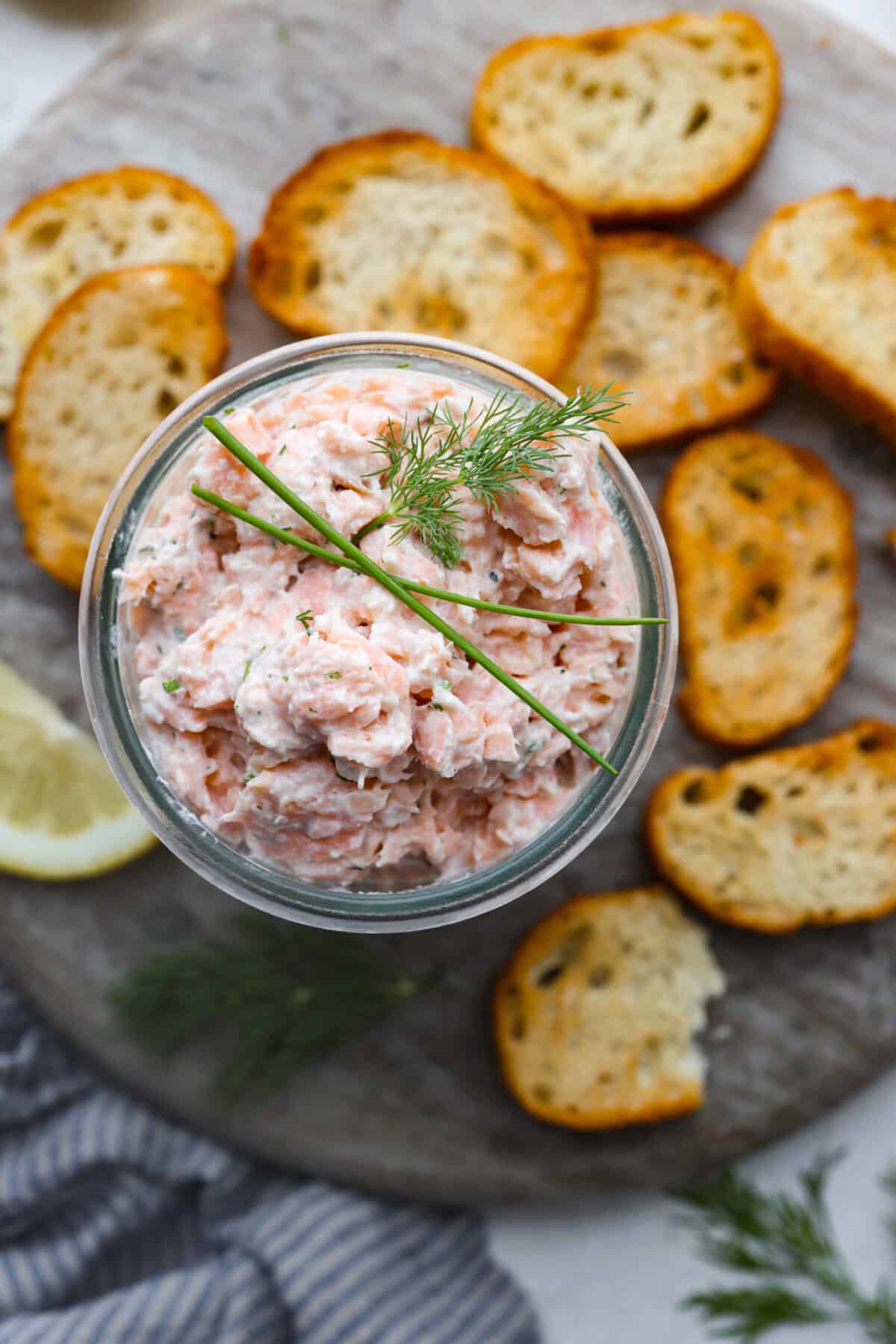
Reasons You’ll Love This Recipe
- Bursting with Flavor: Smoky, fresh, and herby with the best salmon flavor!
- Versatile: Perfect for spreading on crackers, baguettes, or even for dipping freshly cut veggies.
- Great for Entertaining: It’s a simple, yet elevated spread that’s sure to go quick. This is delicious served with a spread of appetizers, like stuffed mushrooms, pecan brie ball and a simple charcuterie board.
- Make-Ahead Friendly: It tastes even better when it has had time to chill, saving you time.
Ingredients Needed
This salmon rillette recipe is one of my favorite appetizers! It’s fabulous for a variety of occasions. I especially think it makes a great holiday app or starter before a holiday dinner. If you enjoy salmon, this is a must try recipe!
- Fresh Salmon: Brings freshness and a flaky texture.
- Smoked Salmon: Adds a bold, smoky taste.
- White Wine: Used to simmer the salmon to add depth and acidity.
- Lemon Peel: Enhances the freshness and balances the richness of the spread.
- Black Peppercorns: For a hint of spice and warmth.
- Fresh Herbs: A combination of fresh dill, bay leaves and chopped chives give the salmon rillettes plenty of complex flavor.
- Fresh Lemon Juice: Brightens and balances the creaminess.
- Sour Cream: Binds the ingredients together for a smooth spread and adds a bit of tang.
- Salt and Pepper: To taste!
- Baguette: Slice and toast for serving.
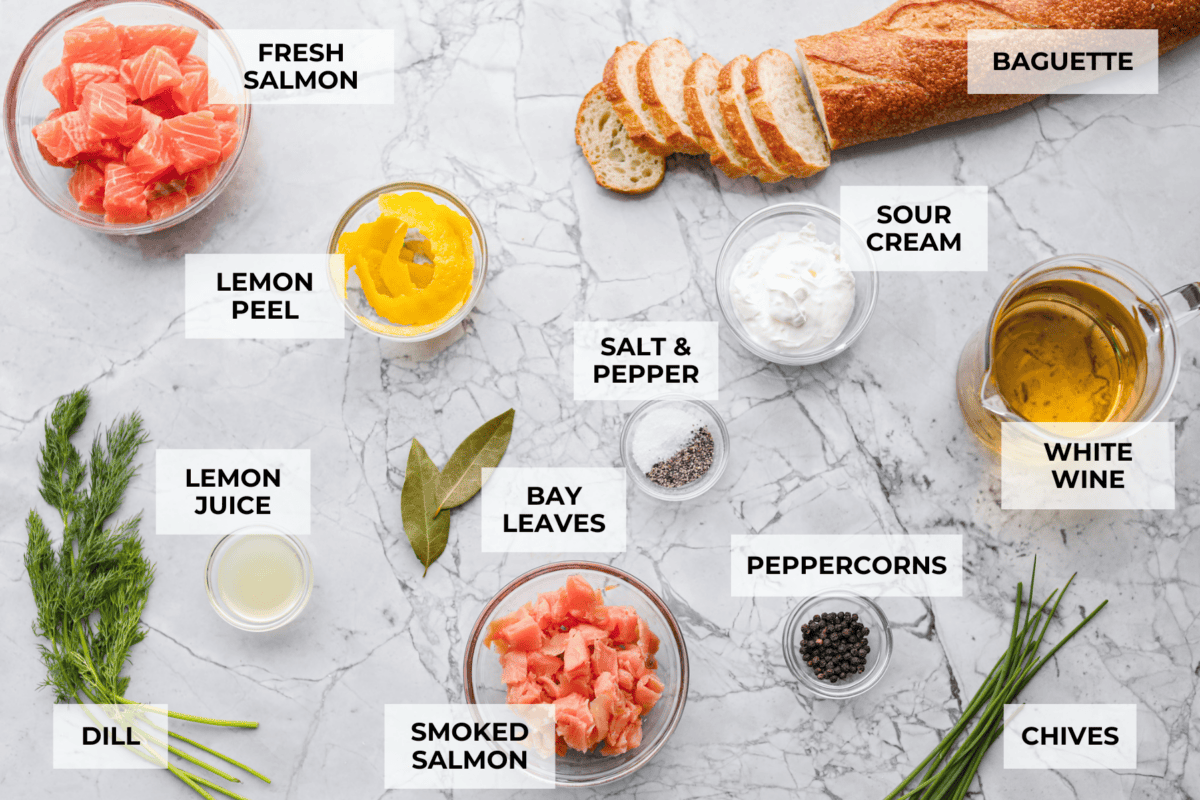
How to Make Salmon Rillettes
Salmon rillettes is a spread that’s surprisingly simple to make. It combines fresh and smoked salmon with a handful of ingredients for an impressive yet easy spread. Just be sure and plan ahead for the necessary chill time!
- Simmer: Add the white wine to a large, deep skillet. Add the lemon peel, peppercorns, sprigs of dill, and bay leaves. Simmer over low heat for 10 minutes, giving the wine time to infuse with the flavors.
- Simmer, then Chill Salmon: Add the fresh salmon to the wine and simmer, stirring occasionally for just over 2 minutes, until the salmon has just barely turned opaque on all sides. Remove it from the pan, then cover, and chill for about an hour.
- Flake Salmon: Once the salmon has chilled, flake it gently into a medium-sized bowl.
- Mix Ingredients: Add the smoked salmon, minced dill, chives, lemon juice, and sour cream to the bowl with the flaked salmon.
- Chill for 1 Hour: Mix until combined. Cover and chill for at least an hour to let the flavors combine.
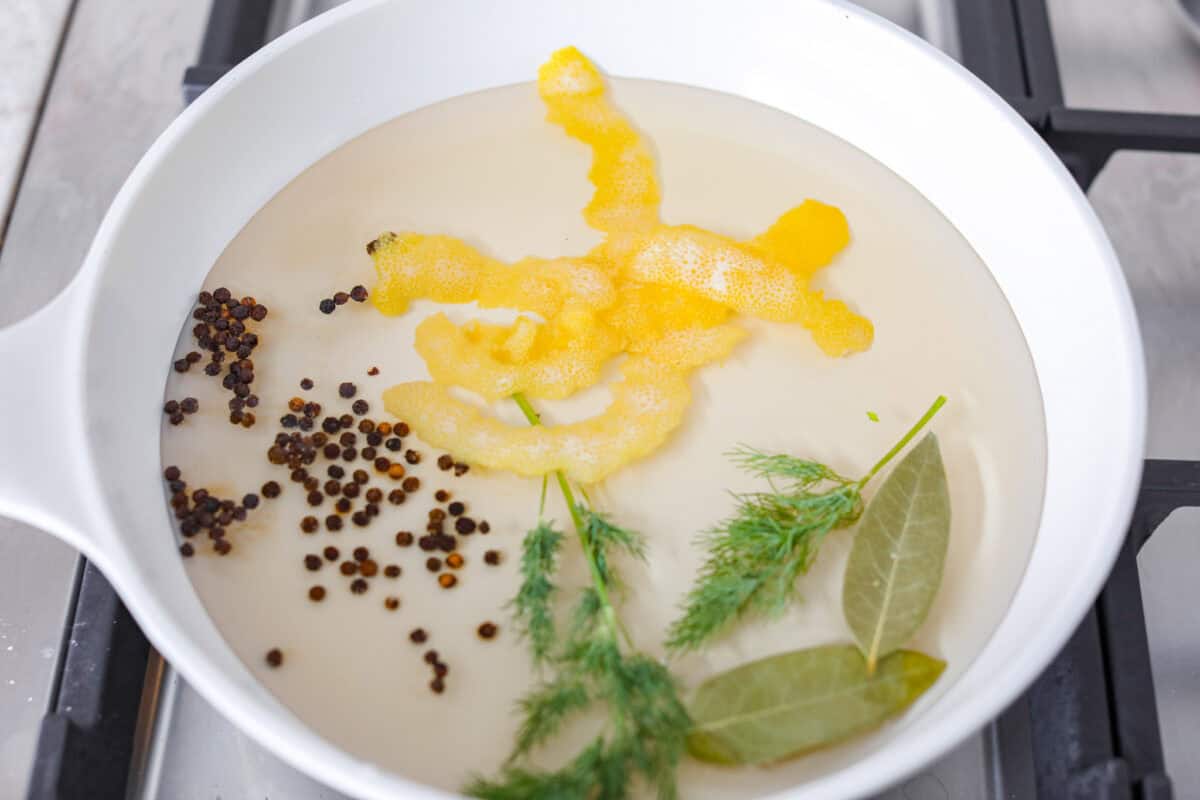
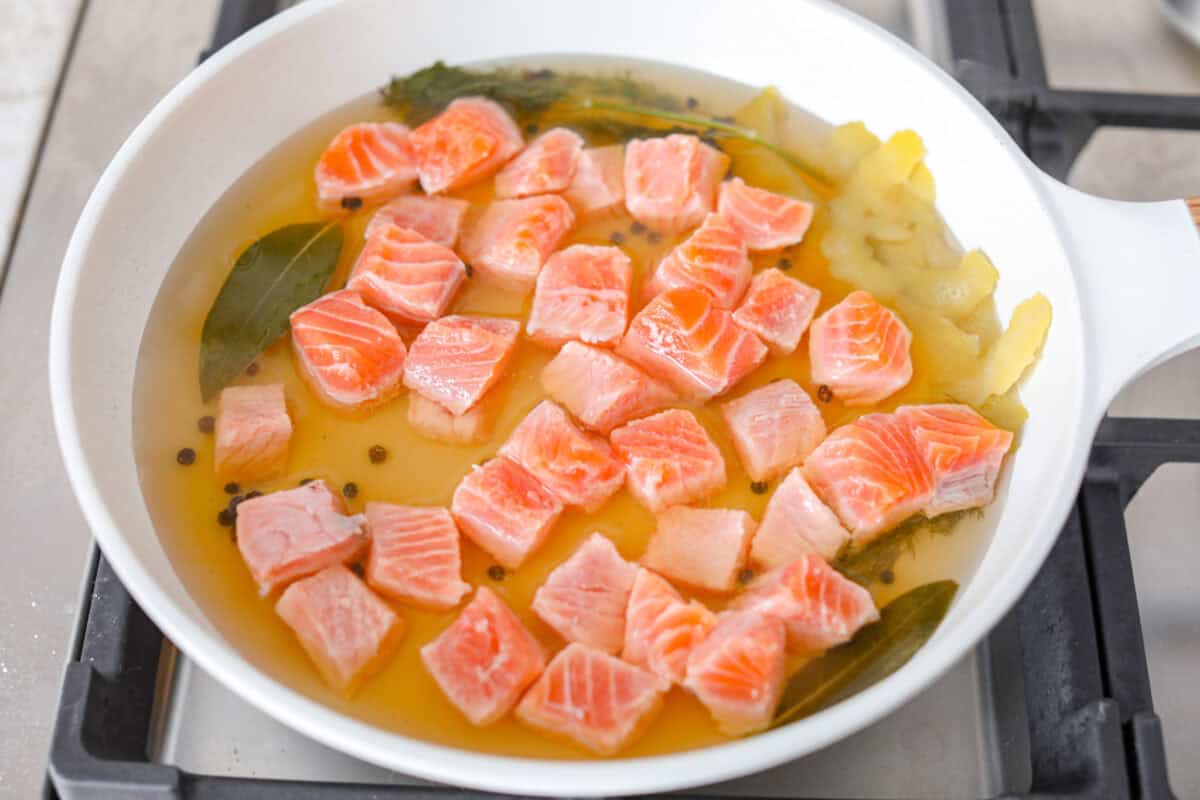
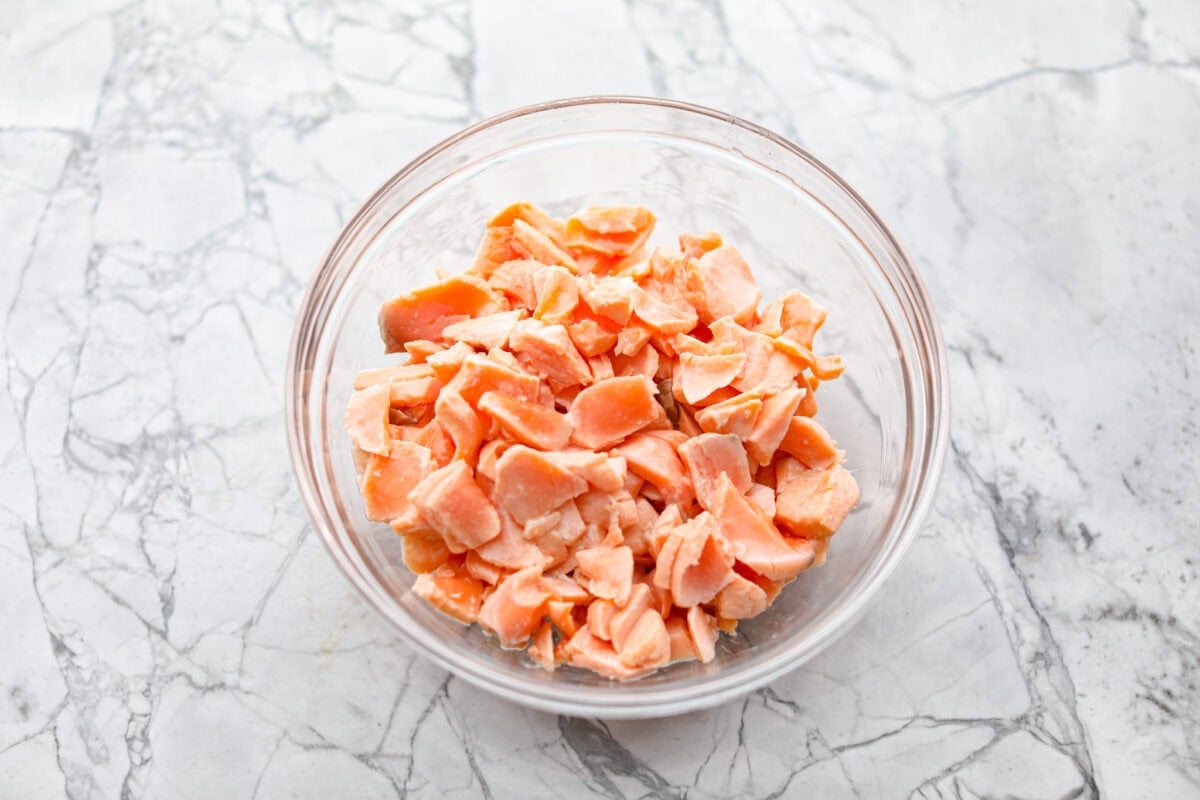
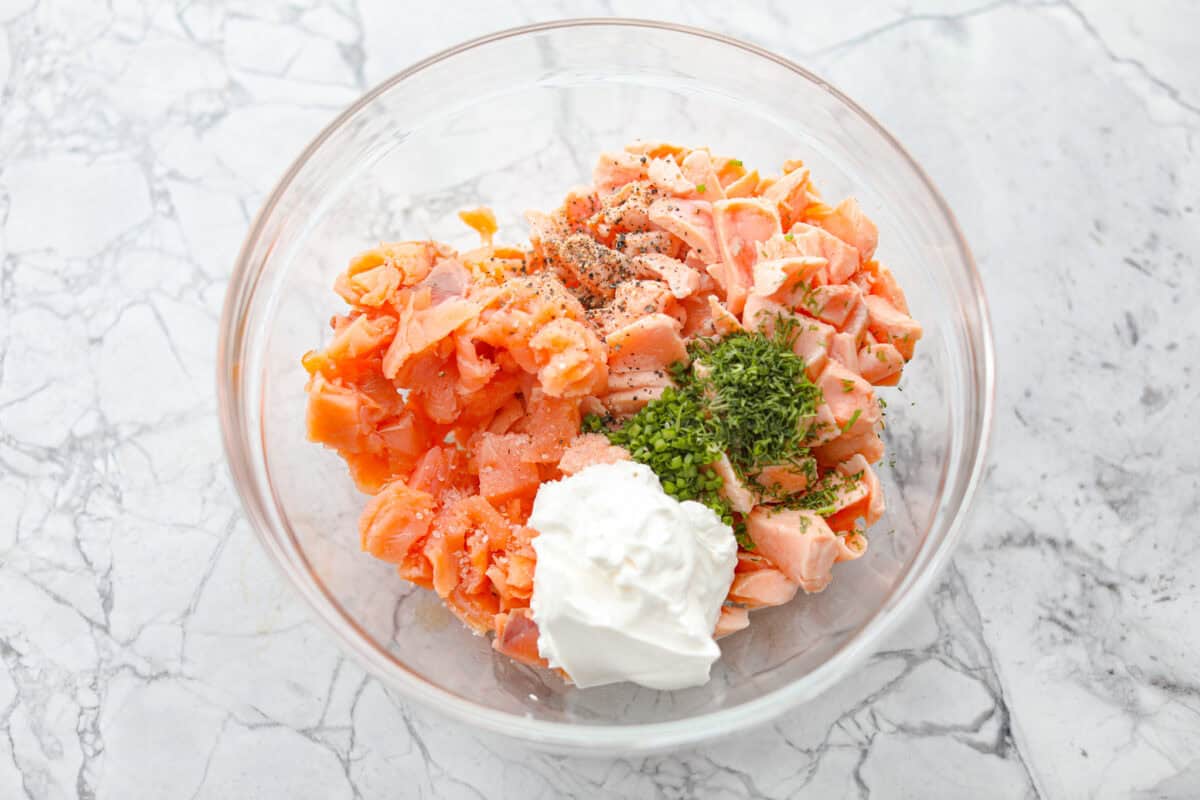
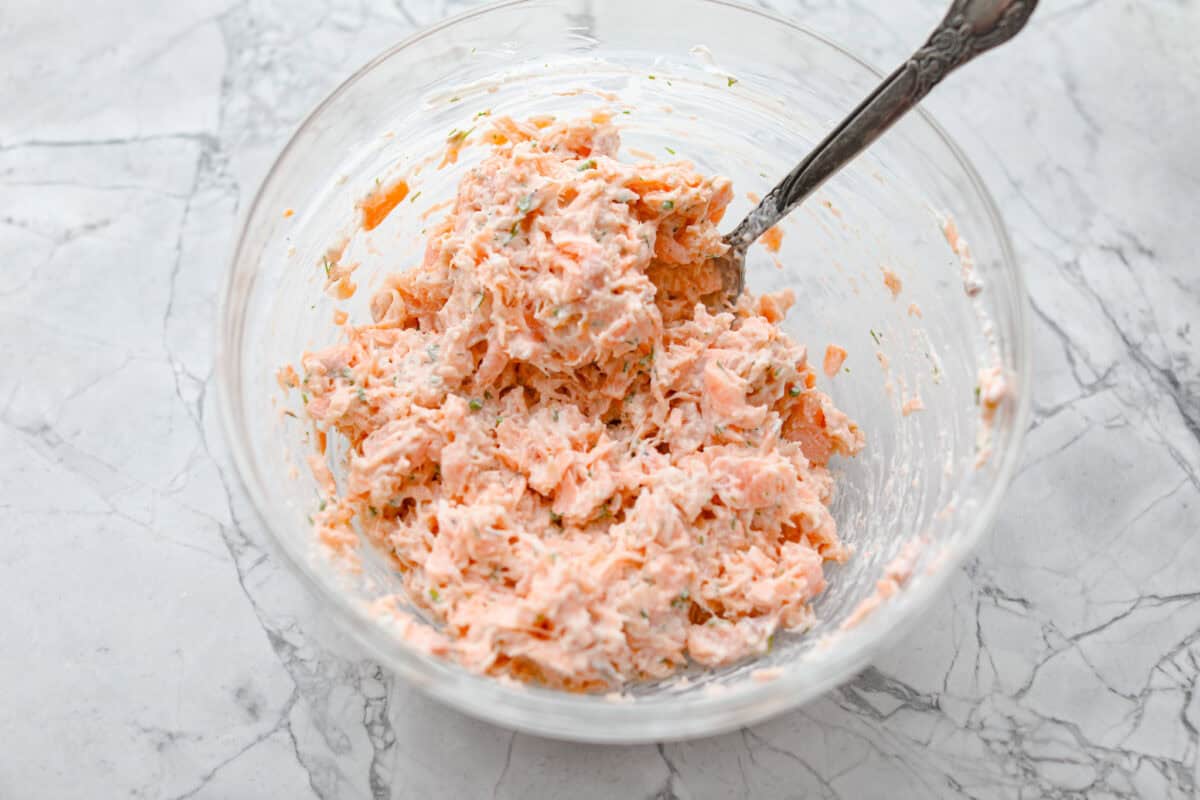
Tips for Making and Serving Salmon Rillettes
Here are several ways to make sure your salmon rillettes is perfect and just the way you like!
- Can I blend this smooth? Sure! Add this to a food processor or blender and make a paste with it. This will turn it into salmon paté instead of salmon rillettes. Since rillettes is more of a chunky spread and paté is smooth. If that’s what you prefer, that will work just fine!
- Don’t over cook the salmon! Let it poach in the wine just until all sides have turned opaque. This cooks the salmon enough for it to be safe to consume with the centers still being raw. It should flake very easily once it has chilled.
- Herb Substitution: Substitute the dill for tarragon for a more licorice or anise flavor.
- Green Onions: You can use green onions in place of the chives.
- What kind of white wine is best? Stick with a dry white wine, such as Chardonnay, Sauvignon Blanc, Pinot Grigio, or even champagne. You may even use the white cooking wine found in the vinegar section of grocery stores. However, a drinkable wine is preferable.
- Sour Cream Alternative: You can use plain Greek yogurt in place of sour cream. It adds a little protein and tastes similar.
- Serving Options: Serve with crackers, crostini, pita chips, or fresh vegetables.
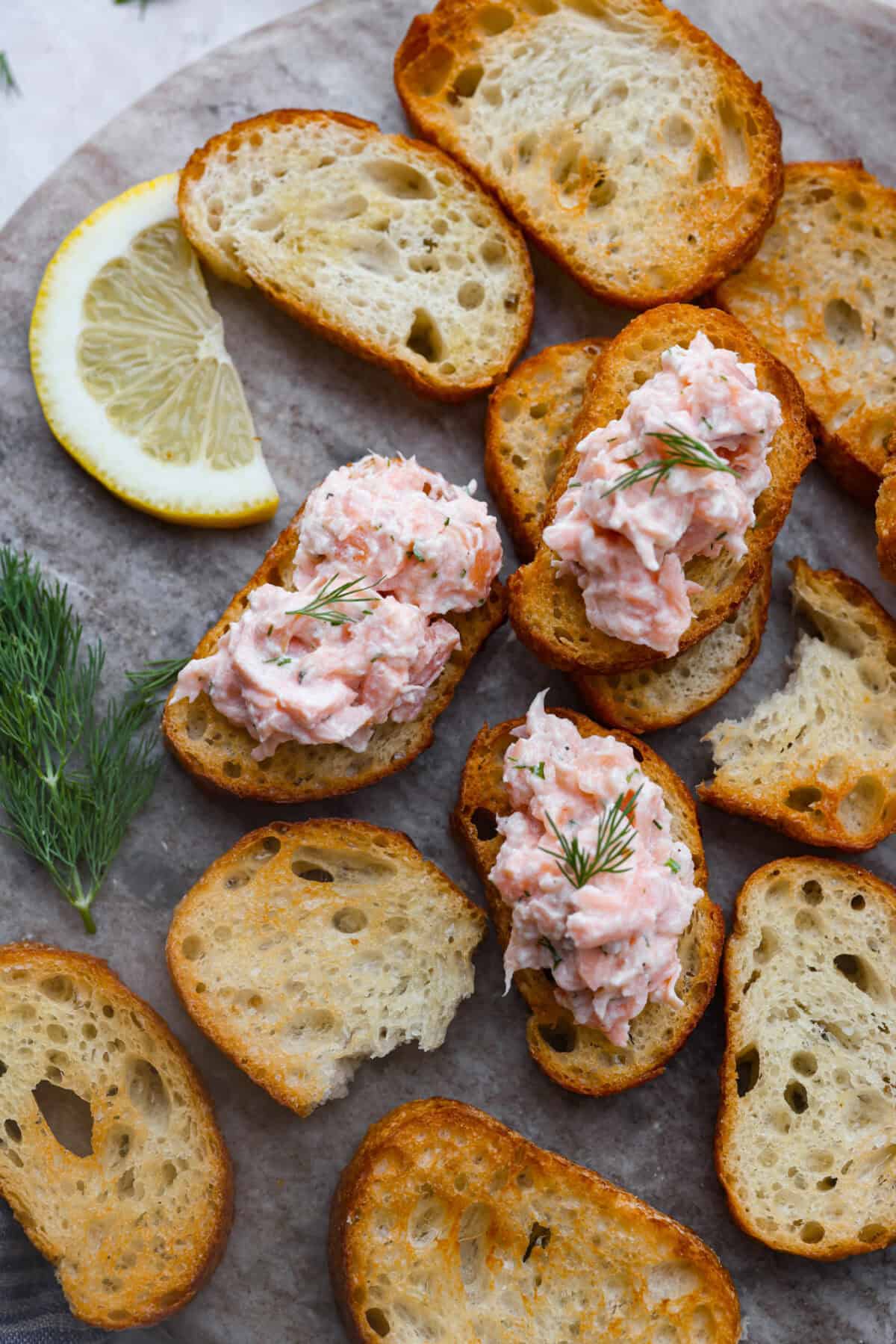
Storing & Serving Leftover Salmon Rillettes
This recipe is actually better when it has time to chill and let all the flavors meld. Here is how to properly store and serve it.
- Refrigerator: Salmon rillettes may be stored in an airtight container in the fridge for up to 5 days. For the best flavor, press plastic wrap tightly against the surface or melt some butter and pour it over the top to seal in the rillettes. You can scrape off the butter or stir it into the rillettes before serving.
- Serve at Room Temperature: Let the rillettes sit at room temperature for 20-30 minutes before serving. It is best served at nearly room temperature. Just be careful to not let it sit at room temperature for longer than 2 hours.
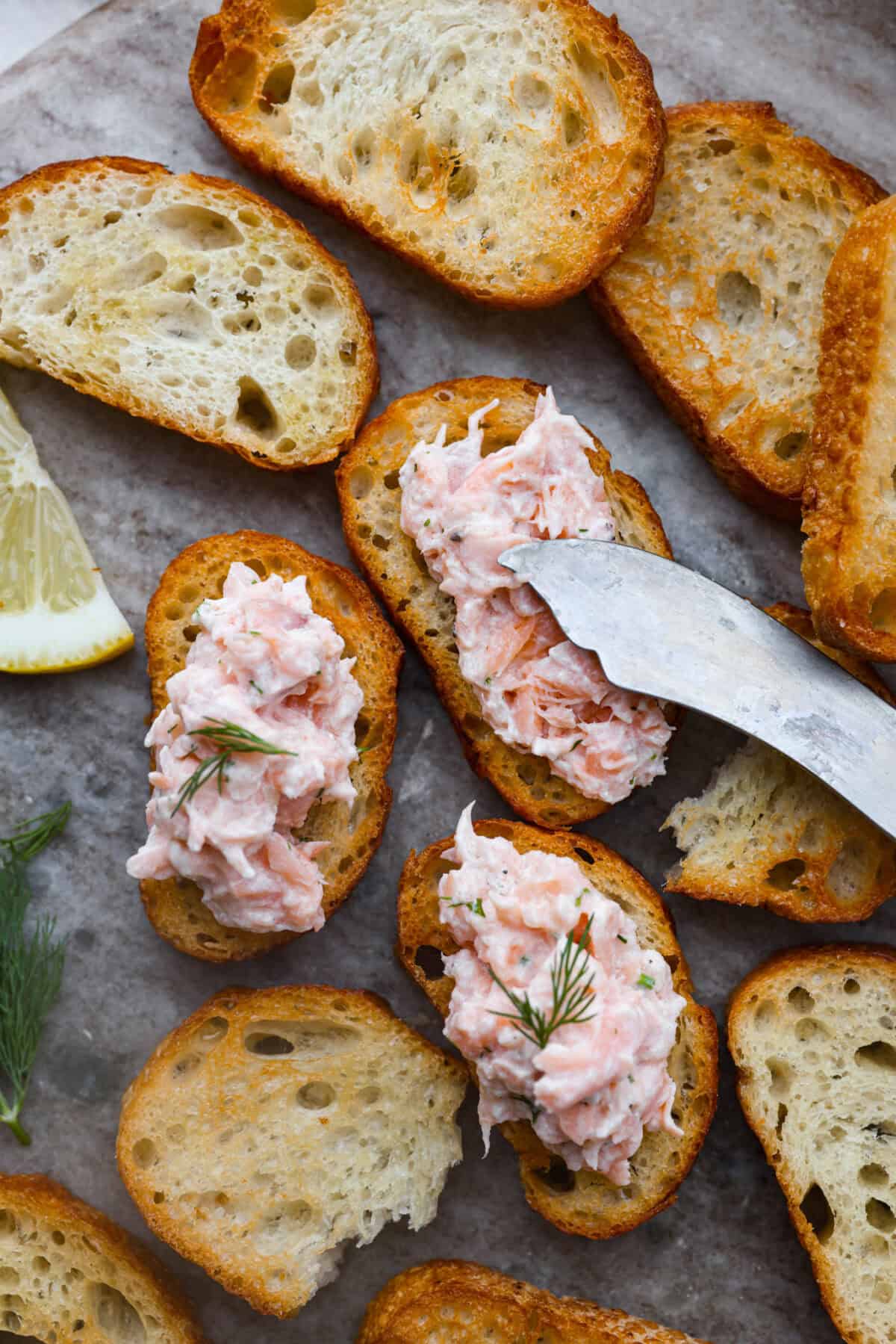
More Delicious Appetizers
Hosting a party or just craving some snack-y foods? Here are some of my favorite recipes that always hit the spot!
Pin this now to find it later
Pin It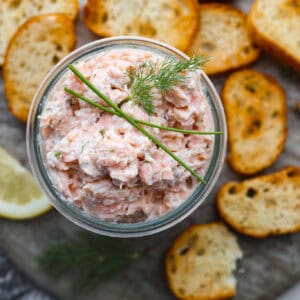
Salmon Rillettes
Ingredients
- 1 pound fresh salmon, skinned and cut into 1-inch pieces
- 4 ounces smoked salmon, chopped
- 2 cups white wine
- peel of 1 lemon
- 2 teaspoons black peppercorns
- 2 sprigs fresh dill
- 2 bay leaves
- 1 teaspoon minced fresh dill
- 1 teaspoon chopped chives
- 1 tablespoon fresh lemon juice
- ⅓ cup sour cream
- salt and pepper, to taste
- 1 baguette, sliced and toasted
Instructions
- Add the white wine to a large, deep skillet. Add the lemon peel, peppercorns, sprigs of dill, and bay leaves. Simmer over low heat for 10 minutes, allowing the wine to infuse with the aromatics.
- Add the fresh salmon to the wine and simmer, stirring occasionally for just over 2 minutes, until the salmon has just barely turned opaque on all sides. Remove it from the pan, cover, and chill for about an hour.
- Once the salmon has chilled, flake it gently into a medium-sized bowl.
- Add the smoked salmon, minced dill, chives, lemon juice, and sour cream to the bowl with the flaked salmon and mix until combined.
- Cover and chill for at least an hour to let the flavors combine. Serve on slices of toasted baguette.
Nutrition
Nutrition information is automatically calculated, so should only be used as an approximation.
